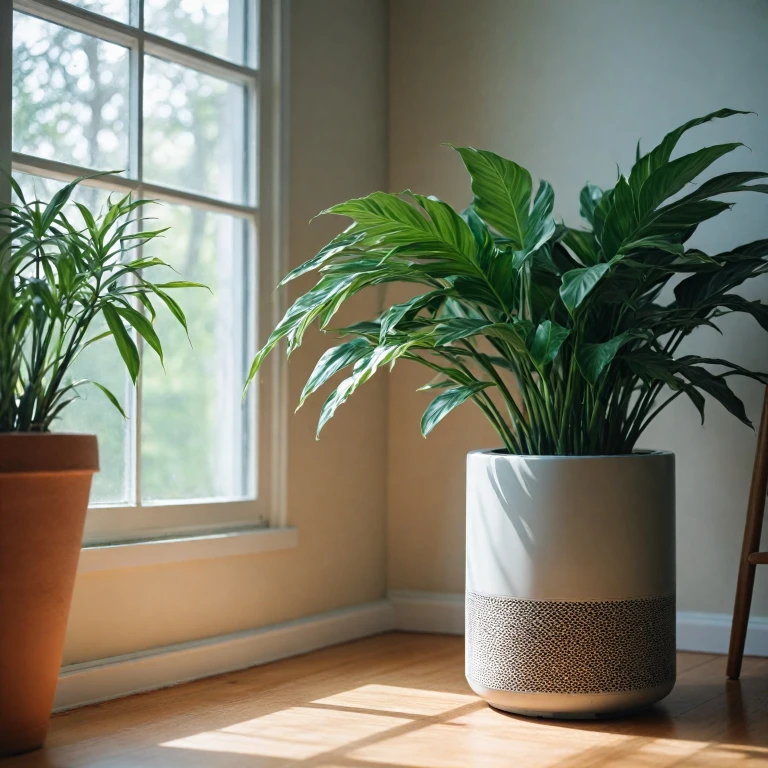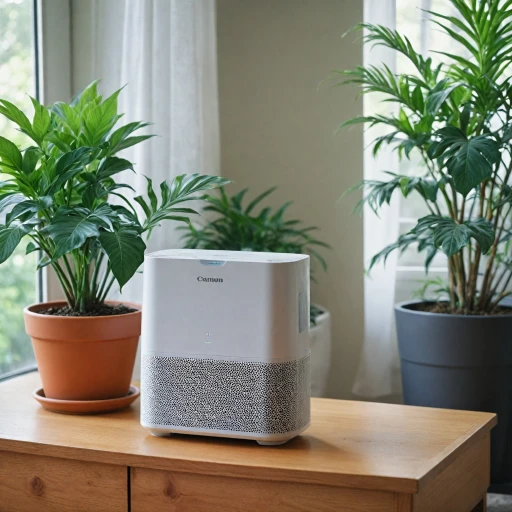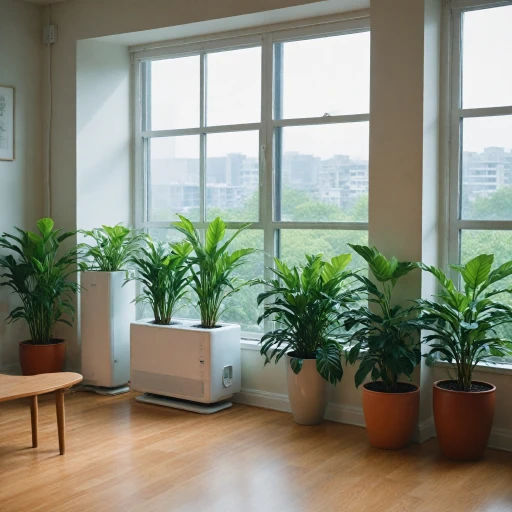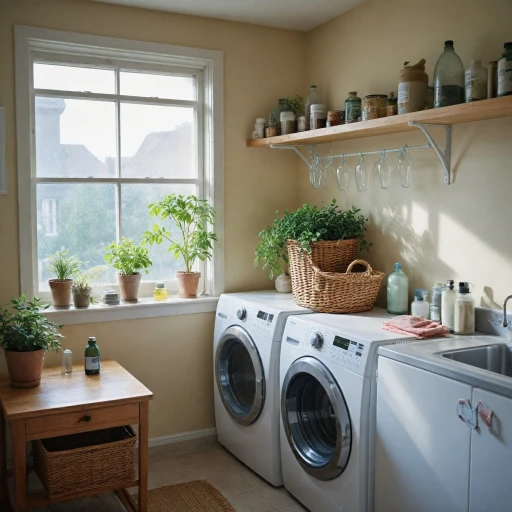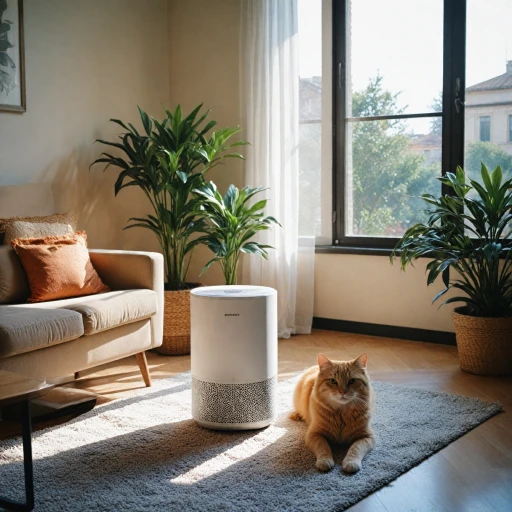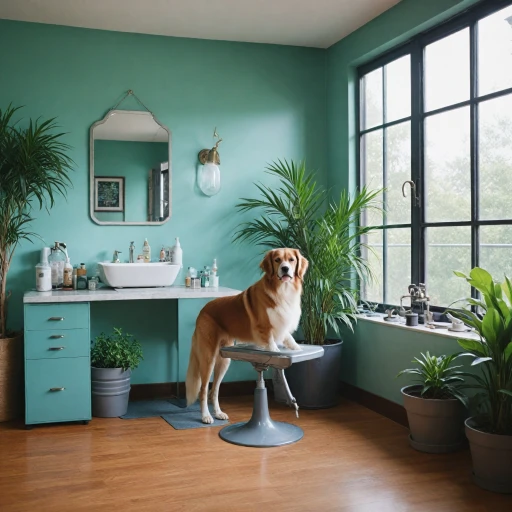Understanding Musty Smells and Their Causes
Unraveling the Mystery of Musty Smells
Musty smells are more than just an unpleasant olfactory experience; they can signal underlying problems in your indoor environment. These odors often stem from mold and mildew growth, which thrives in damp, poorly ventilated spaces such as basements or bathrooms. Mold spores can accumulate over time, leaving an unmistakable and persistent musty odor that even regular cleaning might not eliminate. Apart from being a nuisance, prolonged exposure to mold can potentially impact your air quality, posing health risks, particularly to those with respiratory conditions. In addition to mold, musty smells can be a byproduct of sporadic or inadequate ventilation, trapping air pollutants and moisture in confined spaces. This is particularly true in homes with older builds where the air circulation might not be optimized. Understanding the root causes and dynamics of these smells is essential to selecting the right strategy to combat them effectively. It's not merely about masking odors but rather about removing them and preventing their recurrence. For more insights into tackling allergens that might contribute to indoor air quality issues, you can refer to the anti-allergen laundry detergent guide to enhance your overall strategy. As we uncover in later sections, air purifiers with advanced technology and appropriate filters, such as HEPA and activated carbon, play a crucial role in capturing these smell-inducing particles, thus contributing to a fresh indoor environment free from musty undertones. Ensuring proper maintenance and choosing the best model tailored for your space will further enhance the performance of your air purifier.How Air Purifiers Work Against Musty Odors
Unveiling the Mechanism Behind Air Purifiers
The persistent challenge of musty odors in an indoor space can be quite unpleasant. To understand how air purifiers tackle these unwanted smells, it's crucial to delve into the technology and features they employ. Generally, air purifiers work by drawing in the surrounding air, filtering it through various layers, and then releasing clean air back into the room.
Several types of filters contribute to the elimination of musty smells, including:
- HEPA Filters: These are highly efficient in capturing mold spores and small particles that contribute to musty odors. True HEPA filters can trap particles as small as 0.3 microns, offering exceptional air quality improvement.
- Activated Carbon Filters: This filter type specializes in absorbing gaseous pollutants and odors, such as those from smoke or mildew. The carbon material traps odorous particles, effectively neutralizing the smell.
- Pre-filters: Often the first line of defense, pre-filters capture larger particles, extending the life and performance of the main filters.
Advanced air purifiers also offer smart features like auto mode and adjustable fan speed to optimize their performance based on the room's air quality measurements. These features not only ensure the facility of maintaining a clean atmosphere but also enhance the user's convenience by minimizing the need for manual adjustments.
Various models, such as the Levoit Core and Blue Pure, have been tested by users who struggle with musty rooms, attesting to the effectiveness of their noise level control and adaptable filtration systems. Overall, to consistently achieve superior air quality, investing in a reliable air purifier that fits your specific needs is key.
Choosing the appropriate filters and understanding their functions is vital for those tackling persistent smells in their living spaces. Ensuring an air purifier is equipped with both HEPA and carbon filters will provide a more comprehensive approach in combating musty odors effectively.
For additional guidance on choosing the right cleaning products to accompany your air purification efforts, read more about selecting the right anti-allergen laundry detergent for your home.
Choosing the Right Air Purifier for Musty Odors
Finding the Ideal Purifier for Your Space
Choosing the right air purifier can make a world of difference when tackling those pesky musty odors. It's important to understand that not all air purifiers are created equal, and certain features significantly impact their effectiveness against musty smells.- HEPA Filter: A must when selecting an air purifier for removing musty odors. The best air purifiers come with a True HEPA filter, which efficiently captures mold spores and dust particles. This filter is essential for improving indoor air quality as it removes not only odors but also allergens and fine particles.
- Activated Carbon Filter: This component plays a crucial role in trapping odors. The carbon filter absorbs musty smells, volatile organic compounds (VOCs), and smoke, making the air in your room fresher. A combination of a HEPA filter and activated carbon is particularly effective for ensuring clean air.
- Mold and Mildew Control: Consider purifiers with features specifically targeting mold and mildew growth. This helps in preventing the recurrence of musty odors often caused by mold. For more information on tackling mold, you can read about the right HEPA filter vacuum for mold removal.
- Smart Features: Advanced models come integrated with smart technology. These purifiers typically have sensors to detect air quality and adjust the fan speed automatically to maintain optimal performance. Auto mode is beneficial for maintaining consistent air quality without manual intervention.
- Noise Level: Consider the noise level if you plan to use the purifier in your bedroom or other quiet spaces. Air purifiers like the Levoit Core and Blue Pure models prioritize silent operation without compromising performance.
Benefits of Using Air Purifiers Beyond Odor Control
Beyond Odor Control: The Versatile Benefits of Air Purifiers
Air purifiers offer more than just relief from musty odors. They bring a host of additional benefits that enhance indoor air quality, creating a healthier living environment. Here's how air purifiers score beyond just filtering unpleasant smells:- Allergen Reduction: Air purifiers equipped with True HEPA filters are known for capturing airborne allergens such as pollen, dust mites, and pet dander, helping allergy sufferers breathe easier.
- Mold Prevention: Many air purifiers target mold spores effectively. By filtering out these particles, purifiers can be a crucial line of defense against mold growth, especially in damp areas like basements.
- Smoke Control: Using advanced technology and carbon filters, air purifiers can significantly reduce smoke particles, which is particularly beneficial for those living in areas prone to wildfires or smokers’ environments.
- Improved Respiratory Health: By eliminating a range of airborne irritants, air purifiers enhance lung function and can be particularly beneficial for those with asthma or other respiratory conditions.
- Enhanced Sleep Quality: Clean air can lead to better sleep by reducing nighttime congestion. Some models even offer smart features like auto mode and adjustable fan speed to tailor the air quality to your needs throughout the day and night.
- Noise Reduction: Many air purifiers, like the Blue Pure or Levoit Core series, operate at low noise levels, ensuring functionality without disturbing your peace.
Maintenance Tips for Optimal Air Purifier Performance
Keep Your Air Purifier in Top Shape
Ensuring your air purifier continues to combat musty odors efficiently requires regular maintenance. Here's how to keep your device operating at its best:- Regularly Replace Filters: Most air purifiers, including HEPA and carbon filter models, require periodic filter changes. Depending on your purifier's model and usage, replace HEPA filters approximately every 6-12 months and carbon filters every 3-6 months to maintain optimal air quality.
- Clean Pre-Filters: Many purifiers come with washable pre-filters to trap larger particles like dust and pet hair. Clean these every few weeks to ensure they don't hinder air flow and decrease performance.
- Monitor Indicator Lights: Some smart air purifiers feature indicator lights or notifications to alert you when it's time to change filters or if there's an issue. Paying attention to these can help maintain the purifier's efficiency.
- Check for Mold Growth: In damp environments, like a basement, regularly inspect your purifier for mold buildup. Musty smells can return if mold spores accumulate, so act promptly if you spot any signs.
- Maintain Optimal Noise Levels: If your purifier produces a noticeable increase in noise, it might indicate a need for maintenance. Check all components to ensure they're debris-free and functioning correctly.
- Utilize Auto Mode and Adjust Fan Speed: Many purifiers with advanced technology offer an auto mode that adjusts settings based on air quality levels. This feature not only optimizes performance but can extend the life of your filters.
Real-Life Experiences: Success Stories with Air Purifiers
Transforming Indoor Air Quality: Stories from Real Users
Many individuals have shared their transformative experiences with air purifiers, particularly in combating musty odors. These stories highlight how the right technology can significantly enhance indoor air quality and overall comfort.
One common scenario involves homeowners dealing with persistent musty smells in basements. By using purifiers equipped with a true HEPA filter and activated carbon filter, users have noticed a remarkable difference. These filters effectively trap mold spores and other particles, ensuring clean air circulation. For instance, the Levoit Core series has been praised for its efficiency in such settings, offering features like auto mode and adjustable fan speed to adapt to varying air quality needs.
Another success story comes from those battling odors from smoke. With the right air purifier, equipped with a robust carbon filter, users have managed to eliminate smoke smells, resulting in a fresher and healthier living environment. The Blue Pure models, known for their quiet performance and smart technology, are often highlighted for their ability to maintain low noise levels while effectively purifying the air.
For individuals sensitive to allergens, air purifiers have become an essential tool. By incorporating a pre-filter and HEPA filter, these devices capture even the smallest particles, improving air quality and reducing allergic reactions. Users often report a noticeable improvement in breathing comfort and a reduction in allergy symptoms.
These real-life experiences underscore the importance of selecting the best air purifier tailored to specific needs, whether it's for removing musty smells, smoke, or allergens. By investing in a high-quality purifier, users not only improve air quality but also enhance their overall living conditions.
